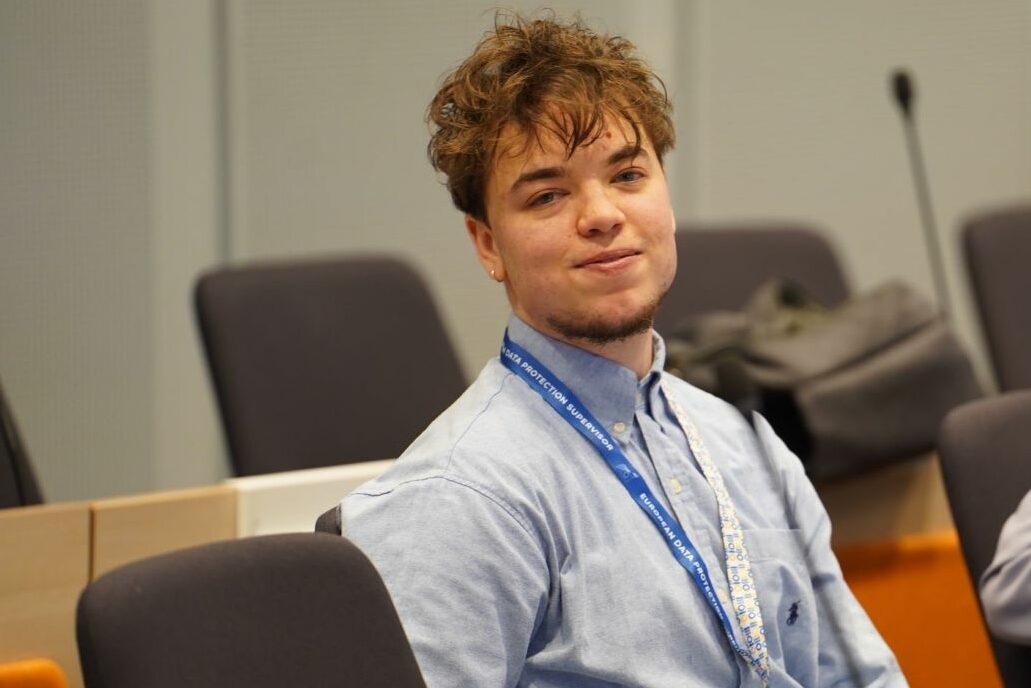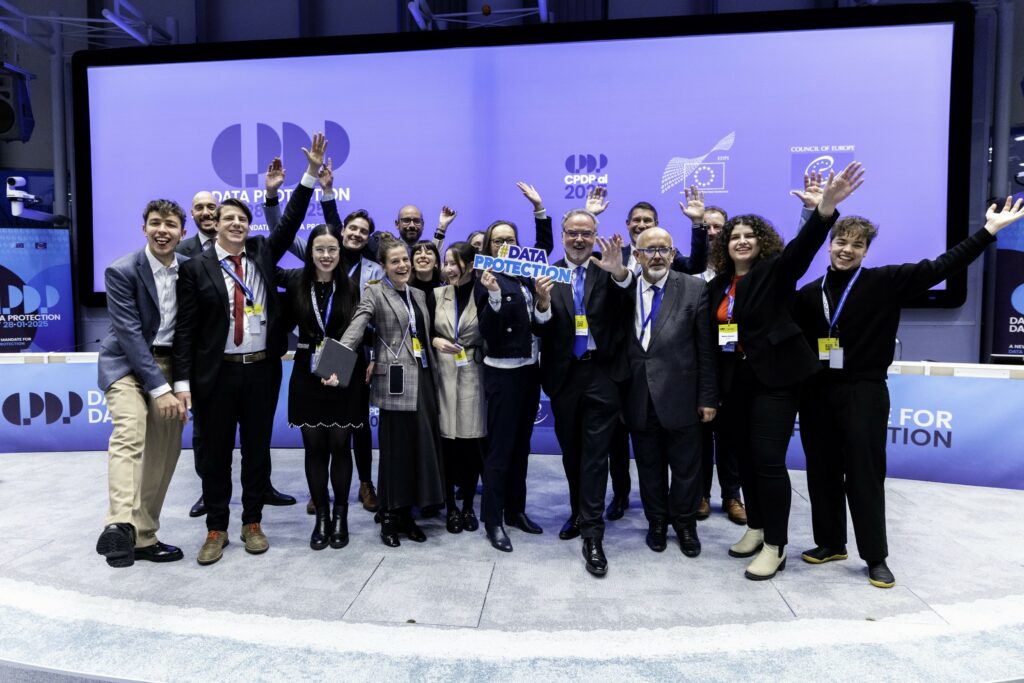Kar Balan is a post-graduate researcher within the Centre for Vision and Speech processing, currently working on the DECaDE project.

With a diverse background which initially started in the film and animation industries, Kar has developed a blend of technical and creative skills and now conducts research at the intersection of computer vision and blockchain technologies with a focus on digital content provenance. His work addresses verifiability, auditability and governance of AI systems, as well as training data privacy, provenance and attribution.
Due to the interdisciplinary nature of working at DECaDE, which offers the opportunity to engage with the wider creative and cultural industries, Kar recently furthered his research experience by successfully securing two internships. The first in London at Digital Catapult, a deep tech innovation organisation and partners for the DECaDE centre. The second in Brussels as part of the Blue Book Traineeship programme, a five-month internship offered by the European Commission, providing graduates from around the world with hands-on experience in EU policymaking and administration.

During his three-month internship at Digital Catapult, Kar’s work centred on cryptographic tools for verifiable AI systems designed to increase transparency and trust in machine learning pipelines. This focus is especially timely in light of growing global attention on AI regulation and safety. One of the key outcomes of this collaboration was the paper A Framework for Cryptographic Verifiability of End-to-End AI Pipelines, which was accepted to the 11th ACM International Workshop on Security and Privacy Analytics (IWSPA 2025). The research makes the case for end-to-end verifiability by designing a cryptographic framework to link together AI processes across an end-to-end pipeline—not just in isolation—providing a foundation for more trustworthy AI systems.
Following this, Kar joined the European Data Protection Supervisor, the EU’s independent authority overseeing data protection within all EU institutions and bodies. His internship coincided with a historic moment: the rollout of the EU AI Act. Working as Policy Officer within the team of the Secretary General, Kar supported the implementation of new responsibilities under the AI Act and helped coordinate inter-institutional efforts on AI and data protection.
We asked Kar to summarise his learnings from his internships in a Q&A interview;
What were the highlights of your internship?
At Digital Catapult, I was immersed in an interdisciplinary environment where technical experts were very tuned into developments all across academia, industry, and policy. It was fast-paced and intellectually demanding, but also incredibly fulfilling. Being able to work on real-world applications of my research—alongside great minds from diverse adjacent sectors—was very motivating.
At the EDPS, the biggest highlight was the people. I was exposed to a whole new world and ecosystem—the inner workings of EU institutions—and got to contribute to something truly historic. With the AI Act just coming into effect, we were creating new processes from the ground up. Notably, I assisted in the preparation and launch of the first-ever meeting of a newly established network of AI correspondents, bringing together representatives from each EU institution, agency, and body.
Being involved in such a pivotal milestone early in my career offered me a rare and meaningful insight into the governance of AI at scale. I definitely never expected to be in such rooms so early in my career and I am very grateful to have had the opportunity to be part of this institution.
What was relevant to your current research?
At Digital Catapult, I was able to experiment with privacy-enhancing technologies, evaluating how they could be integrated into our ongoing research around trustworthy and verifiable AI. That experience has directly shaped the final chapter of my PhD, and I’ve continued collaborating with the Catapult team since returning to DECaDE, which is a big win!
At the EDPS, I contributed to the European Data Protection Board’s decision on personal data processing in the context of AI models—work that’s closely aligned with my research on privacy-preserving AI. It was very valuable to see how these technical ideas are interpreted and applied in real regulatory contexts. Spending a few months getting closely acquainted with the AI Act has also been incredibly useful and has informed my current research.
How has your research helped within your internship role?
My research background was essential and without it I would not have been able to do either internship. At both internships, I was regularly asked to advise on AI-related issues. My understanding of privacy, data governance, and the mechanics of AI systems allowed me to act as a kind of bridge—translating between the legal and technical perspectives. It was very rewarding to see my research applied in real-world contexts both in the innovation and regulatory ecosystems.
What is your main takeaway?
My biggest takeaway is that there are many intelligent and kind individuals working tirelessly to shape a safer, more trustworthy future for AI—across the EU, and beyond. In these chaotic times, this realisation has been very reassuring.
It was also very interesting to be immersed in the lawmaking process itself. I’ve always had an interest in legal and regulatory structures, and being able to attend parliamentary committees—where much of the work happens—was a remarkable experience. It gave me a front-row seat to how policy is debated, shaped, negotiated and implemented, and helped me better understand how research can inform real-world decisions.
How has this time in Industry influenced your own research area?
The experience has helped me understand how compliance works in practice—what regulators will ask for, how they audit systems, and what companies need to demonstrate, which has informed my current research. I also gained a broader perspective on the innovation ecosystem and the policy frameworks shaping it.
What’s your top tip for current PHD students?
Get out there, try different roles and environments, be adaptable. Most importantly, remember why we’re here—we’re researchers, engineers, technologists—we champion innovation, but we should always do it through the lens of safety and responsibility. The tech we build has consequences, and it’s our job to mitigate the harms while enabling the good.
What opportunities has working for DECaDE has given you?
DECaDE has given me a unique PhD experience. The mix of disciplines and expertise is truly special—legal scholars, technologists, designers—all working together. That dynamic has led to real impact, far beyond what I expected when I started. From supply chain integrity to media provenance to AI accountability, our work is resonating across regulatory and social spaces. Beyond research, DECaDE has opened doors I didn’t expect. I’ve built real-life demonstrators, spoken on panels, travelled to present our work and meet stakeholders, and developed work that’s meaningful not just in academic terms, but also in practical, societal ones.
None of this would have been possible without the support of those who believed in me and took the time to guide me. I’m grateful to my PhD supervisors, John Collomosse and Andrew Gilbert, my manager at Digital Catapult, Robert Learney, and my managers at the EDPS, Sonia Perez Romero and Leonardo Cervera Navas.
You can read more about Kar’s research in some of his recent papers;

